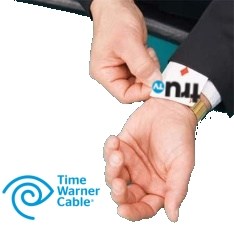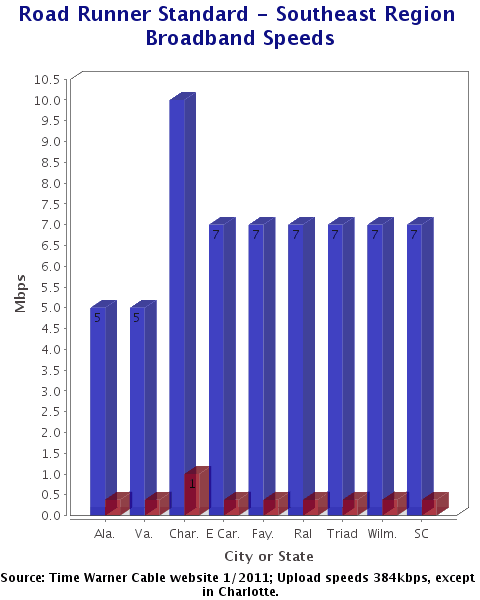
Some Time Warner customers think there is more up the cable company's sleeve than "subscriber convenience."
Time Warner Cable customers across the country have been coping with some dramatic channel realignments over the past year, in some cases finding as many as a half-dozen channels gone missing from their analog basic cable lineup when it’s all said and done.
Communities in South Carolina, Ohio, and Nebraska are the latest to find dozens of channels assuming new positions on the dial, some now requiring a $7-10 digital set top box rental to keep watching.
The reasons for the changes? To make room for an increasing number of HD channels, upgrade to DOCSIS 3 technology to support faster broadband, and to simplify finding networks on a lineup with hundreds of choices.
In Lincoln, Neb., Time Warner Cable will be aligning all of their analog and digital standard definition channel numbers with their HD counterparts. So if CNN occupies channel 120 on the standard definition cable lineup, CNN HD will be found on channel 1120. Customers simply have to add a “1” in front of the three digit channel number to get the same network, when available, in HD.
Lincoln residents may appreciate the fact some channels will be easier to find, but many analog customers without a cable box are not happy several of those channels will be gone from their lineup altogether. The “victims” of the analog to digital switcheroo are familiar to those who have already been through channel realignments — C-SPAN 2, ShopNBC, TruTV, Travel Channel, and Oxygen will be available only to those who have a digital cable box or CableCARD.
In the Myrtle Beach, S.C., area, Time Warner Cable also moved the Speed channel to a new digital-only home. Brett Phillips who lives in Georgetown called that a hidden price increase, telling The Sun News Time Warner was effectively taking away a channel while not reducing his cable bill.
Time-Warner informed me that, effective March 10, I would no longer be able to receive Speed channel, which was part of the cable package for which I had signed up, unless I installed a digital box, which the letter said would be free until Sept. 30. What the company did not state in the letter was that, after Sept. 30, the digital box would cost $9.95 per month. In effect, Time-Warner tried to unilaterally impose an 11.41 percent increase in the monthly cost for the cable service to which I had originally subscribed. The newly required digital box is a standard definition box, which means it will not process high-definition broadcasts.
In Nebraska and Ohio, Time Warner is handing out “free” digital boxes for 12 months, but only to those who do not have one now. Those with existing digital boxes cannot obtain a second one or get their existing box for free. Some critics, including our Lincoln reader Marta says that is a ripoff.
“As a good customer who already pays for two digital boxes and spends almost $200 a month on my cable service, why am I paying for my digital boxes when those who want the lowest priced analog service get one for free,” Marta asks. “Clearly this is a way to get those boxes into peoples’ homes so at the end of the year they will reluctantly pay for the $7 a month to keep renting it.”
Marta was turned down when she asked if she could get a free extra box for her kitchen television.
“No, Time Warner only gives these free boxes to people who never had them before,” she said. “I understand the company needs to make room for new things, but they have got to get these box prices down — they could turn the whole system digital as far as I care -if- the boxes were free, or at least much cheaper.”
Some other subscribers have their own conspiracy theories about the channel realignments.
One Nebraska resident noted Time Warner Cable was moving Fox News Channel to channel 44 — an ominous turn of events for this individual:
“It seems that the liberal unionized TWC is putting Fox News on channel 44. Obama is the 44th President. [George] Soros is behind this I just know it.”
[flv width=”480″ height=”380″]http://www.phillipdampier.com/video/WEWS KSHB Time Warner Channel Changes 4-6-11.flv[/flv]
WEWS-TV in Cleveland and KSHB-TV in Kansas City tell their respective viewers about the grand shuffle in their channel lineups. (3 minutes)


 Subscribe
Subscribe







